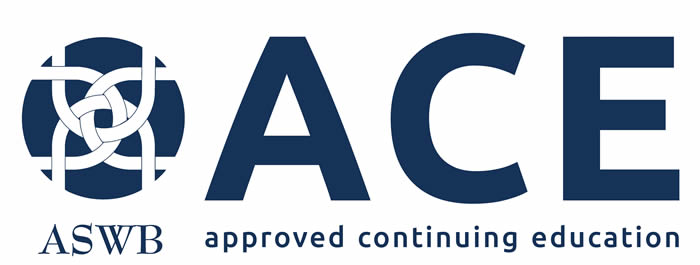
COURSE CREDITS & HOURS
15 CE Credits for Licensed Professional Counselors, Licensed Marriage & Family Therapists, Social Workers, Psychologists, etc.15.75 CE Credits for Psychologists
15.75 ASWB ACE Credits
COURSE FEES
$498 for Psychologists
TARGET AUDIENCE
PROGRAM PURPOSE
-
Self-Care and Wellness Strategies for Helping Professionals
Presented by: Melinda Barbour-Word, LPC, LSATP, LCMHC
In the helping profession, we often prioritize others over our own well-being. True self-care involves a holistic approach across all aspects of life. This session covers the eight dimensions of wellness, helping participants create personalized wellness plans.
Participants will also learn about Acudetox, a technique for stress reduction, emotional balance, and overall wellness. This interactive session offers practical tools for integrating self-care into daily life, allowing participants to support others while maintaining their own health.
Objectives:- Understand the eight dimensions of wellness.
- Develop a personalized wellness plan.
- Learn about Acudetox and its benefits
-
We’re Queer & We’ve Been Here! Exploring Pre-Colonial Queer History & Adlerian Community Feelings
Presented by: Glen Bradley, MA, LGPC, NCC
Where do our gender and sexuality norms originate, and how have they evolved over time? How do these norms shape our clients' identities, resilience, and self-support––especially in today’s sociopolitical climate? If these questions excite you, please join me for this presentation! Alfred Adler’s concept of “community feeling” points to the importance of feeling connected to the cosmic human community spanning time throughout both our past and future. This presentation will explore a variety of gender and sexuality cultural norms across the globe in pre-colonial societies, the influence of colonialism on these norms, and explore how oppression of the past influences power and social injustices of the present. We will conclude with actionable clinical strategies to help queer clients cultivate a strong sense of community feeling, empowering them to resist anti-queer propaganda and build community feeling as a source of resilience.
Objectives:- Learn about the historical context of current gender and sexuality norms.
- Explore therapeutic approaches to decolonizing gender and sexuality within psychotherapy by cultivating an Adlerian sense of community.
- Develop strategies to empower queer clients to build resilience and a sense of community feeling.
-
Understanding the Impact of Political Stress and Suicide
Presented by: Angele Moss-Baker, LPC, LMFT, MAC, SAP
Political stress can significantly impact mental health, especially during and after elections. For some, this stress can lead to feelings of hopelessness and despair, increasing the risk of suicidal thoughts and behaviors. Behavioral health professionals must be able to identify individuals at risk of suicide. Recognizing the warning signs and risk factors associated with suicidal thoughts and behaviors allows these practitioners to offer support and appropriate interventions. This session aims to enhance clinical skills to mitigate the negative effects of political stress and reduce the risk of suicide by further exploring polyvagal theory and somatic therapies for managing stress and reducing the risk of suicide.
Objectives:- Recognize the impact of political stress on mental health.
- Identify signs of suicide.
- Examine techniques to facilitate open and respectful dialogue about political issues.
- Explore somatic therapies and the polyvagal theory for mental and emotional well-being.
-
Cognitive-Behavioral Therapy for Personality Disorders
Presented by: Frances M. Christian, PhD, LCSW
Personality disorders involve long-term patterns of impairment affecting cognition, emotion, and interpersonal behavior. Research shows that Cognitive-Behavioral Therapy (CBT) can reduce symptoms and help people change their thinking and behavior patterns. This session will explore several techniques for addressing personality disorders, such as using a cognitive conceptualization diagram, Socratic questioning, identifying compensatory strategies, analyzing advantages and disadvantages, and conducting behavioral experiments to test cognition.
Objectives:- Conceptualize clients with personality disorders using the Cognitive Behavioral Therapy (CBT) model.
- Evaluate a CBT case formulation for understanding and involving clients in treatment.
- Examine two strategies and interventions aimed at modifying schemas and reducing unhelpful coping mechanisms.
-
Recognizing the Impact of Childhood Trauma, Implicit Biases, and Societal Norms on the Supervisor/Supervisee Relationship
Presented by: Miranda Y. Pearson, PhD, LCMHCS, NCC, BCC, CSOTP, MAC, BC-TMH
Adequate supervision is more than just a professional obligation; it is a dynamic relationship shaped by personal experiences, societal influences, and unconscious biases. This engaging two-hour workshop explores how childhood trauma, implicit biases, and societal norms impact the supervisor/supervisee dynamic. Participants will examine how these factors shape perceptions, interactions, and decision-making within supervision to enhance cultural humility and improve supervisory effectiveness.
Objectives:- Define and Explain the Key Concepts of childhood trauma, implicit biases, and societal norms.
- Examine the Influence of Trauma on Supervision.
- Recognize unconscious biases in supervisory releationships and apply at least two techniques to mitigate their impact.
- Examine how cultural and societal expectations shape supervisors' and supervisees' behaviors and expectations.
-
Motivational Interviewing and Trauma-Informed Care for Healthcare Practitioners
Presented by: Darryl Moch, MEd
This interactive training is designed for practitioners in health and human service-related fields seeking to enhance their clinical skills by integrating Motivational Interviewing (MI) techniques within a Trauma-Informed Care (TIC) framework. Through discussion and role-play participants will weave trauma-informed principles into MI strategies and identify adaptive treatment approaches to meet the unique needs of clients with trauma histories. Join us in this enriching experience to transform your practice and promote healing through understanding and compassion!
Objectives:- Correlate trauma types and their impact on behavior, emotional regulation, and motivation.
- Describe the prevalence of trauma in various populations and apply effective MI strategies to optimize treatment outcomes.
- Utilize trauma-informed motivational interviewing techniques to support clients in transitioning from victimhood to empowerment.










































